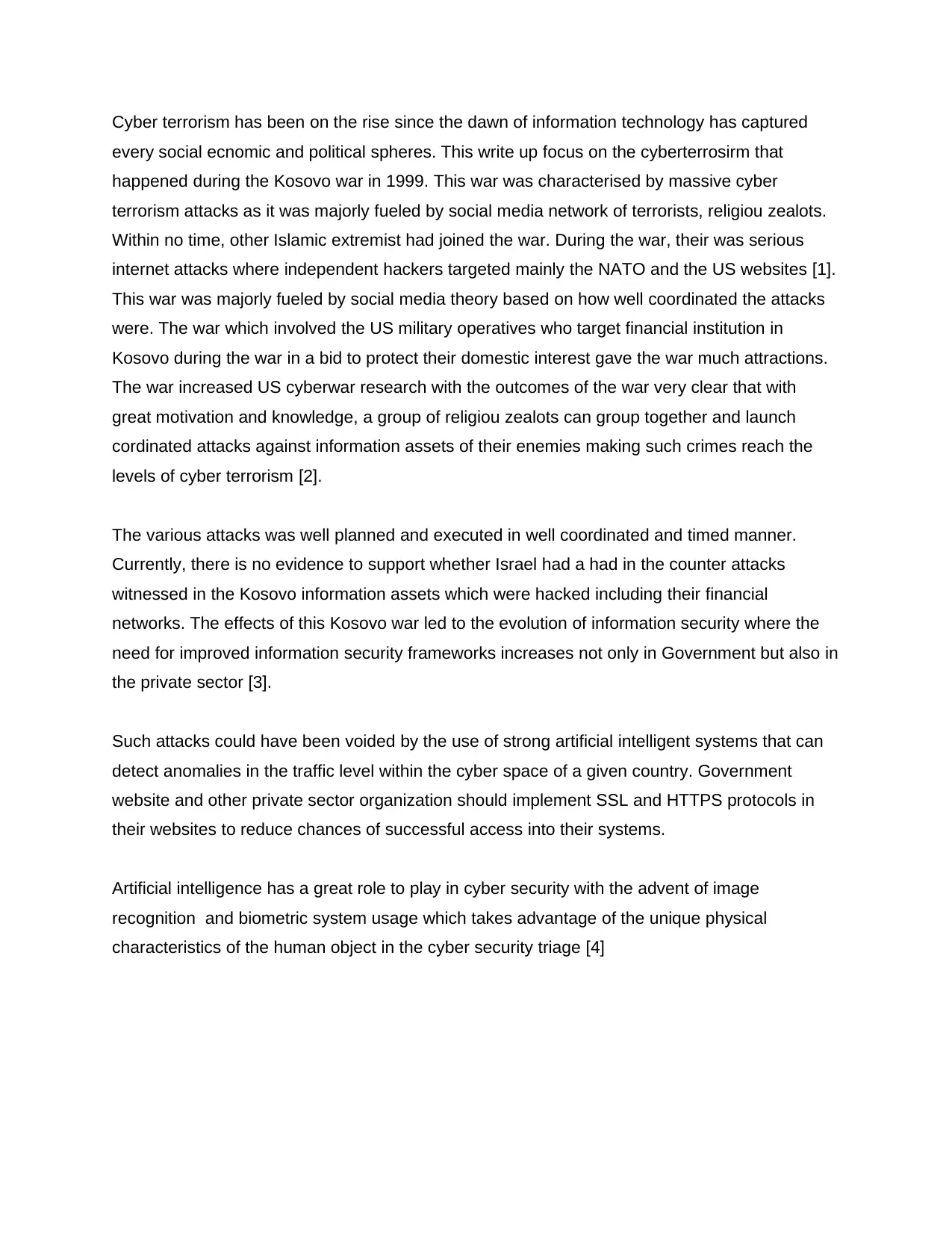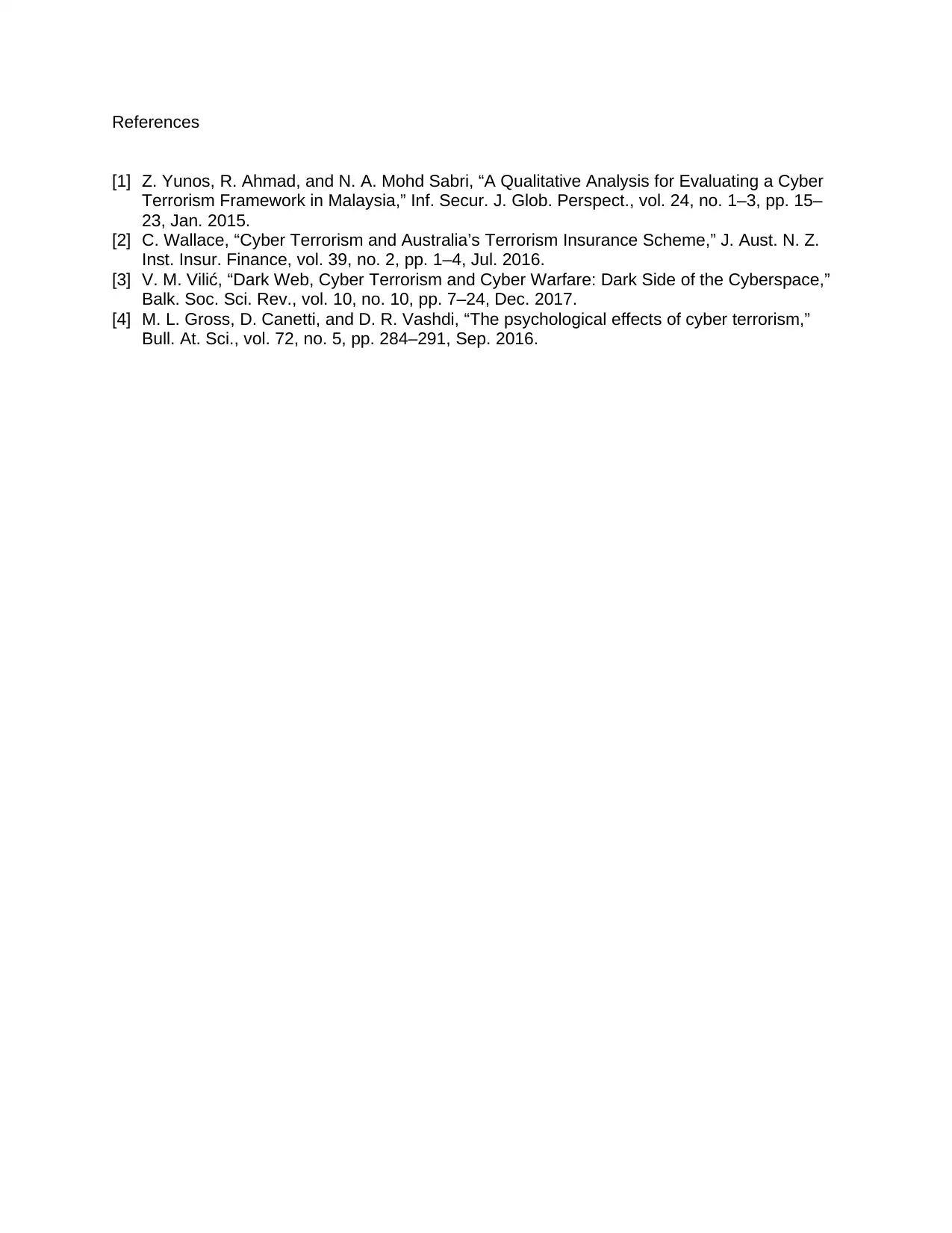Cyber Terrorism and AI: The Kosovo War and AI in Cybersecurity
VerifiedAdded on 2022/10/11
|2
|570
|28
Report
AI Summary
This report examines the rise of cyber terrorism, particularly focusing on the events during the Kosovo War in 1999. The assignment highlights how the war was characterized by cyber attacks, fueled by social media and religious extremism, targeting NATO and US websites. It delves into the impact of these attacks, emphasizing the need for improved information security frameworks in both government and private sectors. The report underscores the potential of artificial intelligence (AI) in cybersecurity, particularly through anomaly detection and biometric systems. It also references various sources to support the analysis. The Kosovo War's cyber attacks led to increased research in cyberwar and the importance of AI in counter attacks.
1 out of 2


![[object Object]](/_next/static/media/star-bottom.7253800d.svg)